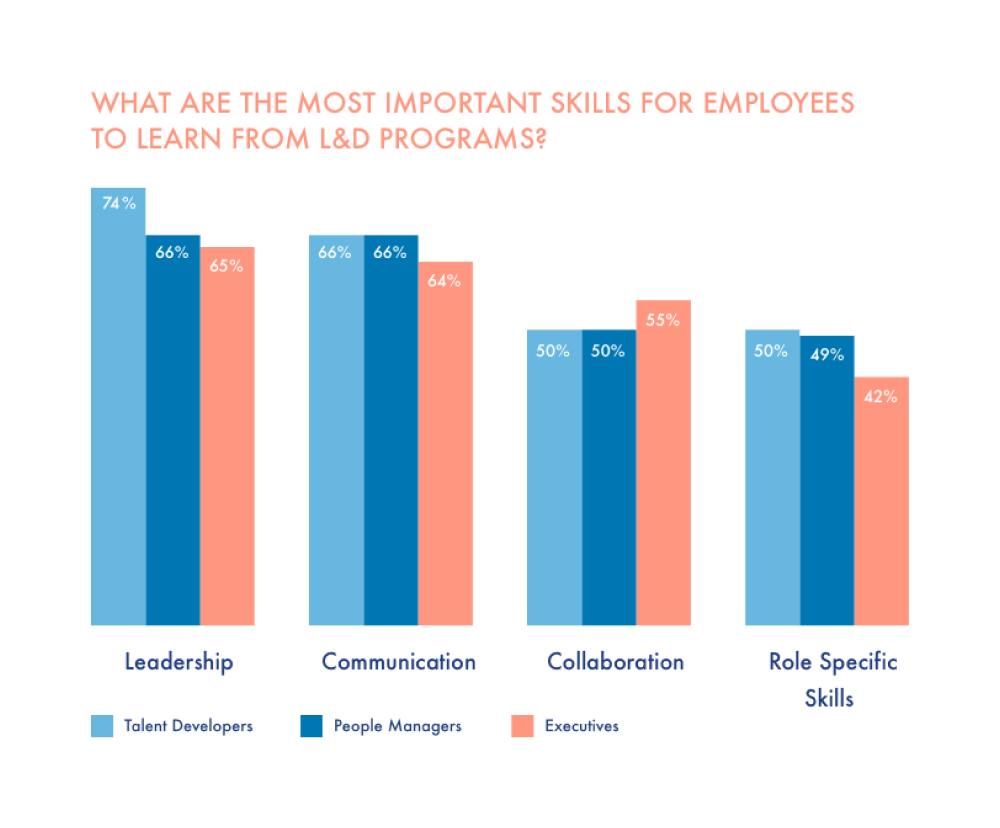In today’s competitive job market, attracting and retaining top talent has become one of the biggest challenges for employers. While offering competitive compensation remains important, employees now seek more than just a paycheck. They are looking for companies that prioritize employee well-being, provide opportunities for career growth, and foster a positive, inclusive workplace culture.
To meet these expectations, employers need to adopt a holistic approach that goes beyond salary. A well-rounded strategy is essential to keeping employees engaged and satisfied in the long term and includes:
- comprehensive healthcare benefits,
- positive workplace culture,
- professional development opportunities,
- & much more!
There are key strategies that companies can implement to create an environment where top talented individuals not only want to join but also stay and thrive. These tips will help employers stand out in the market and build a loyal, motivated workforce.
Create a positive work environment
A positive work environment is essential for attracting and retaining top talent. Employees thrive in workplaces that are inclusive, respectful, and supportive, where open communication and collaboration are encouraged.

Company Culture
Fostering a positive, inclusive, and respectful workplace culture should be a top priority for any organization looking to attract and retain talent. When employees feel valued and respected, they are more likely to contribute to a productive and engaged work environment.
Research shows that employees are 20% more productive in organizations that prioritize a positive culture, according to a Gallup survey. ¹
Encouraging open communication and collaboration helps build trust and companionship among employees, leading to better team dynamics and overall job satisfaction.
Work-life Balance
In addition to culture, promoting a healthy work-life balance is crucial. Offering flexible work hours, remote work options, and sufficient paid time off demonstrates that a company values its employees’ well-being beyond the office.
Flexible work arrangements not only improve employee satisfaction but also increase retention. A report from the Harvard Business Review found that companies offering flexible work options saw a 55% increase in employee retention. ² Allowing employees the autonomy to balance their personal and professional lives helps prevent burnout and keeps them motivated.

Employee Recognition
Recognizing and rewarding employees for their hard work and contributions is another important aspect of creating a positive work environment. Implementing recognition programs that regularly acknowledge employee achievements—whether through awards, bonuses, or public recognition—boosts morale and motivation. Employees who feel appreciated are more likely to be engaged and loyal, leading to better performance and lower turnover rates.
Provide professional development opportunities
Investing in employees’ growth and development is a significant strategy for retaining top talent. Offering continuous learning opportunities not only enhances skills but also demonstrates that the company values employee growth.
Training and Development
Providing employees with access to ongoing training programs, workshops, and courses can significantly improve job satisfaction and retention. By enabling employees to acquire new skills and stay up to date with industry trends, companies empower their workforce to grow professionally.
This sense of investment in their career development fosters loyalty and engagement. According to a LinkedIn study, 94% of employees said they would stay at a company longer if it invested in their career development. ³ Offering opportunities for continuous learning helps employees feel more valued and motivated, leading to higher productivity and long-term retention.

Career Advancement
In addition to training, creating clear career paths is essential for employee retention. Employees need to know that they have opportunities to grow and advance within the organization. Offering promotions, internal mobility options, and mentorship programs can help employees chart their career paths within the company.
When employees see opportunities for advancement, they are more likely to stay engaged and committed to the organization. Providing mentorship opportunities can also guide employees in achieving their career goals, creating a mutually beneficial relationship between the employee and the employer.
Emphasize a strong mission and vision
A company’s mission and vision are more than just statements on a website—they are the guiding principles that define its purpose and impact. For employees, working for a company with a clear and meaningful mission can foster a deep sense of connection and motivation.
Purpose-Driven Work
Employees are more engaged and productive when they understand the greater purpose behind their work. A clear and compelling mission helps employees see how their individual contributions align with the company’s overall goals, creating a sense of meaning and fulfillment.
According to research by Deloitte, mission-driven companies experience 30% higher levels of innovation and 40% higher levels of employee retention. ⁴ This demonstrates that employees are more likely to stay with companies that prioritize a higher purpose.
By regularly communicating the company’s mission and vision, employers can cultivate a workforce that is motivated by shared goals and values.
Corporate Social Responsibility
In addition to a strong mission, companies that engage in socially responsible activities can further enhance their appeal to both employees and customers. Supporting community initiatives, promoting sustainable practices, and championing ethical business standards show that the company is committed to making a positive impact beyond its bottom line.
Employees, especially younger generations, are increasingly drawn to companies that demonstrate social responsibility. Engaging in these efforts not only boosts employee morale but also strengthens the company’s reputation and attracts talent that values corporate citizenship.

Leverage technology and innovation
In today’s rapidly evolving workplace, technology plays a vital role in driving both employee satisfaction and overall company efficiency. Providing employees with the right tools and embracing innovation can help streamline workflows, improve collaboration, and increase productivity.
Modern Work Tools
Equipping employees with up-to-date technology is essential for maintaining both efficiency and job satisfaction. Outdated or inefficient tools can slow down workflows, cause frustration, and negatively impact employee morale.
By investing in modern work tools, such as project management software, cloud-based applications, and automated systems, companies can improve the employee experience and empower their workforce to perform at their best.
When employees have access to cutting-edge tools, they are not only more efficient but also feel valued by their employer, knowing that the company is committed to supporting their success even through technology.
Digital Communication Platforms
As remote and hybrid work environments become more prevalent, the importance of seamless communication cannot be overstated. Modern communication platforms, such as Slack, Microsoft Teams, and Zoom, enable employees to collaborate effectively regardless of their physical location.
These tools promote real-time communication, foster teamwork, and ensure that remote employees remain connected to their colleagues and company culture. By leveraging these platforms, businesses can create a more flexible and inclusive work environment, which is crucial for attracting and retaining top talent in an increasingly digital world.
Maintain transparent leadership
Transparent leadership is essential for building trust and fostering a sense of belonging among employees. When leaders are open and communicative, employees feel more connected to the company’s mission and are more likely to remain loyal.
Open Communication
Keeping employees informed about company changes, goals, and performance is crucial for maintaining trust and engagement. Transparent communication ensures that employees understand how their work contributes to the company’s overall success and allows them to align their efforts with organizational objectives.
When leadership shares both successes and challenges openly, it fosters a culture of honesty and accountability.
According to the Institute for Public Relations, companies with transparent communication practices see a 25% higher employee retention rate. ⁵ This demonstrates the powerful impact transparency can have on creating a loyal and engaged workforce.
Feedback Culture
In addition to open communication from leadership, it’s equally important to create an environment where employees feel comfortable sharing their feedback. Regularly soliciting input through surveys, one-on-one meetings, or suggestion boxes helps employees feel that their opinions are valued. Even more critical is acting on the feedback received—when employees see that their suggestions lead to tangible changes, it reinforces their sense of ownership and investment in the company’s success.
A strong feedback culture not only improves workplace morale but also helps leadership stay attuned to employee needs, enabling proactive adjustments to policies or practices.

Promote diversity and inclusion
In today’s global marketplace, promoting diversity and inclusion is not just a moral obligation but a business imperative. A diverse workforce brings a variety of perspectives, ideas, and experiences that drive innovation and business success.
Diverse Workforce
Hiring a diverse workforce is essential for building a strong, dynamic organization. A diverse team reflects different backgrounds, experiences, and viewpoints, which can lead to more creative problem-solving and better decision-making.
Research by McKinsey & Company shows that companies with diverse executive teams are 33% more likely to outperform their peers. ⁶ This highlights the competitive advantage of diversity in leadership and across all levels of the organization.
Fostering an inclusive environment where everyone feels valued and respected is key to retaining top talent from diverse backgrounds. When employees feel that their unique perspectives are appreciated, they are more likely to stay engaged and committed to the company’s mission.
Focus on employee well-being
Supporting employee well-being is a critical component of fostering a productive and engaged workforce. Companies that prioritize both mental and physical health create environments where employees feel valued and supported, leading to increased satisfaction and retention.
Mental Health Support
Mental health is a growing concern in today’s workplace, and companies that provide mental health resources are better equipped to retain top talent. Offering services such as counseling, mental health days, and access to mental health professionals can make a significant difference in employees’ overall well-being.
According to the World Health Organization (WHO), poor mental health costs the global economy $1 trillion in lost productivity annually. ⁷ By addressing mental health proactively, companies can reduce absenteeism, increase productivity, and foster a more supportive work environment. Making mental health a priority also helps reduce stigma and ensures that employees feel comfortable seeking help when needed.

Wellness Programs
In addition to mental health support, promoting physical wellness is equally important. Wellness programs such as fitness initiatives, access to healthy snacks, or company-wide wellness challenges can encourage employees to maintain healthy lifestyles. These programs not only contribute to employees’ overall well-being but also help to reduce stress, boost morale, and increase energy levels. Companies that offer comprehensive wellness programs demonstrate a commitment to their employees’ health, which in turn fosters a more engaged and motivated workforce.
Engage in continuous improvement
To retain top talent, companies must continually assess and improve their workplace practices. Regular employee satisfaction surveys provide valuable insights into employees’ needs and areas where the company can improve. By gathering feedback, employers can identify potential issues before they escalate and make informed decisions that positively impact the employee experience.
In addition to gathering feedback, it’s crucial to remain agile and responsive to evolving employee expectations and market trends. Companies that adapt and evolve their policies and practices—whether by offering new benefits, embracing flexible work arrangements, or updating development opportunities—will be better positioned to attract and retain top talent in an ever-changing job market.
Offer competitive compensation and benefits
Attracting and retaining top talent requires more than a positive work environment; it also demands competitive compensation and benefits. Offering salaries and benefits packages that meet or exceed industry standards ensures that employees feel valued and financially secure.
Competitive Salaries
Regularly reviewing and adjusting salary packages is essential to staying competitive in the job market. As industries evolve, so do salary expectations, and keeping up with these changes helps prevent top talent from seeking opportunities elsewhere.
According to a Glassdoor study, 57% of job seekers list salary as the most important factor when considering a job offer. ⁸ Ensuring that compensation aligns with industry standards can give companies a competitive edge when attracting new hires.

Comprehensive Healthcare Benefits
Beyond salary, offering comprehensive healthcare benefits is a crucial factor in employee retention. The Kaiser Family Foundation found that 80% of employees are more likely to stay with an employer offering comprehensive health benefits. ⁹ Moreover, a Harvard Business Review study found that 88% of employees would consider leaving their job for a position with better health benefits. ¹⁰
Providing robust health insurance and a well-managed pharmacy benefits plan, such as the Complete PBM Services offered by Intercept Rx, can greatly enhance job satisfaction and employee loyalty. Employees from companies that partner with Intercept Rx appreciate the significant savings on their pharmacy expenses, reinforcing the value of a well-structured benefits plan.
Retirement Plans
Offering retirement savings options, such as 401(k) plans with matching contributions, is another key element of a competitive benefits package. These plans not only provide financial security for employees but also demonstrate that the company is invested in their long-term well-being.
Conclusion
Attracting and retaining top talent requires a holistic approach that goes beyond competitive salaries. Employers must offer comprehensive compensation packages, foster a positive work environment, provide opportunities for professional development, and promote strong company values.
By focusing on these areas, companies can create an atmosphere where employees feel valued, motivated, and engaged. To remain competitive in today’s evolving job market, employers should continuously evaluate and enhance their workplace practices, ensuring they meet the needs of both current and future employees.
Footnote Markers:
¹ https://www.gallup.com/workplace/236366/right-culture-not-employee-satisfaction.aspx
⁵ https://instituteforpr.org/conversations/
⁸ https://www.wellable.co/blog/2016-02-10-benefits-and-perks-top-consideration-for-57-of-job-seekers/
⁹ https://www.kff.org/report-section/ehbs-2023-summary-of-findings/
¹⁰ https://hbr.org/2017/02/the-most-desirable-employee-benefits




